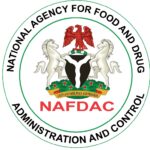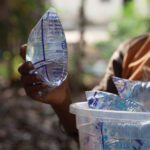The combined evil of the proliferation of herbal and unregulated medicine practice in Nigeria has reached an alarming stage. Sadly, the trade has continued to flourish largely due to the gullibility of Nigerians and the lackadaisical attitude of those charged with tackling the issue. Simply put, it has become a time bomb and the time to diffuse it is now.
Indeed the problem is not new. As far back as 2013, Dr Paul Orhii, a former Director-General of the National Agency for Food and Drug Administration and Control (NAFDAC) had cause to read the riot act in Lagos during a stakeholders’ meeting on “Regulation of Herbal Medicines in Nigeria.” He said then that, “Time has come to address the challenges confronting herbal medicine practice in Nigeria, that has given room for unethical practices and exploitation of unsuspecting Nigerians.’’
But 10 years down the line, we are still battling with the same problem. The National Agency for Food and Drug Administration and Control was established by Act Cap N1 Laws of the Federation of Nigeria (LFN) 2004 to regulate and control the manufacture, importation, exportation, distribution, advertisement, sale and use of Food, Drugs, Cosmetics, Medical Devices, Packaged Water, Chemicals and Detergents (collectively known as regulated products).
In an investigative report titled ‘Baba Aisha, Nigerian herbal doctor cashing out on deadly concoction’, which was published by this paper on June 10, this year, the report probed the content of the concoction and how the failure of regulation allowed the herbal medicine called SACRA to continue to be sold to unsuspecting members of the public.
- Senate relaunches probe into N483bn MSME loan
- We will work with you to foster peace in Kwara, Emir tells Onijagbo
According to the report, “What Baba Aisha referred to as medicine in the advertisement is a liquid mixture sold in a 120ml unsealed bottle. Each bottle contains a yellowish, minty liquid with a noticeable powdery residue. Our investigation reveals that the colour and amount of residue in each bottle are determined by retailers who add a black powdery substance after taking stock of the pure yellow liquid.’’
Aside from the fact that Baba Aisha has no professional qualification to produce drugs for human consumption, the investigative report showed that the medicine in question, SACRA, had a tendency to harm users.
According to NAFDAC’s Food, Drugs and Related Products Act, no herbal medicinal product should be manufactured, exported, advertised, sold or distributed in Nigeria unless it has been registered. But here is Sacra Herbs with two registration numbers – A7-2551L and A7-2590L, both tagged ‘NAFDAC REG NO’ on each bottle.
In response, the agency said the herb was submitted for registration in January 2018 and the request was granted after ‘all the necessary procedures for registration were duly followed by the company and proper documentation provided.’
NAFDAC noted that it received a request for renewal of the registration in August 2020, which it refused to grant, as the application and vetting of the company’s facility for Good Manufacturing Practice (GMP) turned out ‘unsatisfactory, ’ but the product is still out there being sold to unsuspecting members of the public.
There are hundreds of loose canons like Baba Aisha across the country cashing in on the non-availability of medical centres and medical personnel, especially in the rural areas. So while the government concentrates its energy on the centre, these characters prowl the hinterland looking for their next customer, or victims, to put it more aptly. The economy, in a way, also contributed to this menace as the purchasing power of Nigerians continue to dwindle, making citizens to go for these cheap but deadly alternatives. More health centres and medical personnel should be built and equipped in order to reduce the reliance on these killer herbal medicines across the country.
There is, therefore, the need to embark on serious sensitisation campaign so that people can better understand the need to avoid putting themselves in the line of fire in the name of seeking treatment. There is no gainsaying the fact that many have had their cases complicated by these unregulated substances being sold as medicine. NAFDAC should also collaborate with the police and other law enforcement agencies to nip this menace in the bud. Those caught should be made to face the full wrath of the law to serve as a deterrent to others.
The time has also come for NAFDAC to step up its regulatory power in order to put a stop to these slowly-killing-herbal medicines. NAFDAC’s responsibility is beyond its internally generated revenue, it must perform its statutory role of protecting lives. Those vending untested medicines should also be prosecuted in a way that others will dread to tread going forward.

 Join Daily Trust WhatsApp Community For Quick Access To News and Happenings Around You.
Join Daily Trust WhatsApp Community For Quick Access To News and Happenings Around You.



